- Home
- Daphne Du Maurier
Julius Page 9
Julius Read online
Page 9
It was joy and it was hell at the same time; the pain, the intolerant thirst ‘scorching’ his throat, the warm flesh of the mule against his nose, and a vision of trees and sun and sky flashing past him, the black scared face of Boru beside him, showing the whites of his eyes.
The road began to slope, they were coming to the outskirts of Alger - Marcel pointed ahead jabbering meaninglessly, and as the bend in the road brought them up against a wall the mules shied nervously, unseating the boys, a couple of them pitching head-foremost into the ditch, Boru clinging on to the reins of his two animals and being dragged for fifty yards or more, Marcel landing on his tender parts into a cactus bush screaming with the pain. Julius lay with his face in a dung-heap helpless with laughter; it was Toto who pulled him out and brushed the filth from his clothes. Boru and Pierre had secured all the six mules, and the boys stood in a group panting, heaving, grinning at each other, the breath and the laughter exploding from them like a steam engine.
‘Marcel in the cactus bush,’ yelled Julius. ‘I shall never forget it, never - nor Boru split in two between his mules, one foot on the ground - oh! what a glorious life.’
‘And you,’ pointed Toto, ‘your face covered in dung; what d’you think you look like?’
Julius crumpled in the ditch once more, helpless with mirth. ‘What are we going to do with these blasted animals?’ asked Marcel.
‘Soon, my friend, soon,’ said Julius weakly. ‘Let’s go and drink somewhere just for the love of God. The cattle market must wait.’
Toto helped him to his feet once more, and gathering the reins of the poor animals, who still sniffed about them in terror, the boys went down the hill into Alger, laughing and lurching over the stones, brushing the dirt from their coats and shaking their caps. Three little Arab urchins, begging for sous, looked after the mules whilst Julius and his companions went into a café to quench their thirst.
Julius, filthy in his dusty dung-bespattered clothes, demanded a wash. It was good to plunge his head and shoulders into the cold water, to shake the drips from his hair and to feel the water trickle down beneath his shirt to his streaming body. He opened his mouth wide and gasped, he drew his head up from the basin snuffling like a wet puppy. His ribs were bruised, his arms nearly pulled from his sockets and his legs black and blue from bumping against the side of the mule, but he felt fine - strong, somehow. He lit a cigarette and tied a soaking handkerchief round his head to keep cool.
The boys were leaning against the bar, clamouring for attention, thumping with their fists.
Julius pushed his way in amongst them and flung down a five-franc piece.
‘Come on,’ he said, ‘we’re pressed for time; we’ve got to sell half a dozen animals in the cattle market before sundown. Be sharp or we’ll take our custom elsewhere.’
In less than twenty minutes all the boys were drunk except Julius. He was used to drinking and could carry more than this, but he was burning inside and if his hand was steady and his eye was clear, there was a reckless something within him that made him care for nothing and for no one.
‘Come on, you dribbling bastards,’ he said, and the older boys followed him, flushed and stupid like so many sheep.
‘We’ll ride to the market in style,’ said Julius carelessly, and he hauled himself up into the saddle once more and jerked savagely at the reins. He clattered through the streets of Alger scattering the people to right and left, waving his hand to an old fellow who shook his stick at him and cursed, nearly running down a woman who screamed in terror, clutching her children by the hands.
‘We’ll have the soldiers after us if we’re not careful,’ shouted Pierre, but Julius laughed, caring not at all, and he charged his animal into the square cattle market packed with people, knocking into a flock of sheep as he did so. He looked around him, smiling; this was the sound he liked, the jabbering tongues of merchants bargaining with one another, hands spread wide, fingers tapping upon an open palm; nods and whispers, the clink of coins passing from one to the other. He made his way to the side of a tall fellow in a cloak and wearing a fez, who was feeling the legs of a thin poorly fed horse. This man had a loose, protruding underlip and big eyes like a fish, but his clothes were good. He looked wealthy and a fool. Julius had picked his man.
‘Half-starved beasts don’t give service,’ he said boldly; ‘anyone who sells such an animal is robbing the purse of the honest. Are you an expert in beasts?’
The fishy-eyed fellow shook his head. ‘I don’t mind about looks, it’s strength and carrying power I’m after,’ he said.
Julius nodded, twisting a cigarette.
‘I can see you know your business,’ he said; ‘you have already agreed that such horse is only fit for pasture. What you need is a mule, hefty and powerful.’ He bent and whispered in the man’s ear. ‘Listen, this is between ourselves. There is an animal here, Arab stock, arrived in Alger this morning from Aumale. His owner has asked me to sell him cheap, you understand?’ He laid his finger against his nose and winked.
The man in the fez was lost, but no matter. He winked too, as though he understood.‘Don’t let this go any further,’ muttered Julius, ‘the demand will be greater than the supply and the price will be raised automatically. But because I want no questions asked I am prepared to sell you this animal at the lowest possible price. For eight louis he is yours - cash down at once, take it or leave it.’
The fellow took off his fez and scratched his head. ‘That is double the price I meant to pay,’ he said.
Julius laughed. ‘For a starved, bloodless pony, you’re right, my friend. But for a mule, a thoroughbred straight from the stock of the sheik Abdullah Ben-Ahmed - eight louis is nothing, it is less than a jet of spittle. Look here - feel his shoulders; look at that head. You are a judge, I can tell that. You know a bargain when you see one.’
The man fumbled with his purse. ‘You are right, the mule is worth more than eight louis. Here is the money, I’ll take him at once.’
Julius’s hand was already outstretched. ‘An animal of his build will outlive you and your children,’ he said, ‘even your children’s children. Good evening to you,’ and he laid the reins over the man’s wrist and slipped away into the crowd.
The boys were not doing so well. Perhaps it was the drink or perhaps it was natural inefficiency, but a dealer had noticed them from the start and was rapidly persuading them to sell up all five mules at a low price in order to clear.
‘I will take them off your hands for fifteen louis,’ he said, thrusting his fingers into his palm, glancing from one to the other. ‘I can see the beasts have been stolen and you don’t care to be caught. Come now, I have made you an offer.’ Marcel shuffled his feet, red and awkward.
‘Hold on,’ interrupted Julius, ‘I have just sold my animal for five louis, and he was the smallest of the bunch. If we ask six louis for these it’s giving them away. Nor were they stolen, sir, they were part of my father’s legacy.You have had dealings with him, no doubt, El Taza of Aumale?’
‘El Taza is not dead?’ exclaimed the dealer.
‘He died at sundown yesterday, Allah rest his soul,’ lied Julius coolly, thinking of the stunned merchant on the road to Constantine. ‘I am his illegitimate son and I was the love of his heart. Will you give me six louis apiece for these animals?’
‘I will take three at five louis each, youngster.’
‘Five and a half and the bargain is yours.’
‘Done.’
The money exchanged hands and Julius nodded to the boys to follow him.
‘We’ve only two left,’ he said. ‘The best plan for us now is to put these beasts in the auction ring. I’ll give the fellow five francs to sweeten his gabble and to lay it on thick.’
The boys were too dazed and stupid with drink to take in a word of what he said.
‘Here - leave it to me,’ said Julius, and he led the two remaining mules to the auction ring. The salesman had just disposed of a flock of sheep and was wiping the swea
t from his forehead. Julius slipped a five-franc piece into his hand.
‘Spin them the goods,’ he whispered. ‘I want you to get rid of these beasts for me. Don’t knock them down beneath four louis.’
He stood at the man’s elbow while the mules went up for sale; he listened with approval to the cheap clap-trap. In fifteen minutes the mules were sold, one for five louis, the smaller for four. Julius pocketed the cash and strolled back to the boys.
‘Both knocked down for three,’ he said carelessly; ‘that crowd weren’t wasting anything. Come to a café and let’s settle up. I’ve got a thirst.’
They pushed their way to a café on the square, and sitting round a table Julius ordered drinks. He spoke rapidly and the boys could not follow his meaning.
‘We’ll turn it into francs for shares,’ he was saying; ‘first mule a hundred francs, and three at a hundred and ten, four ten, and two at sixty, five hundred and sixty francs. D’you agree? five hundred and sixty francs, which gives us an equal share of a hundred and twelve francs each, minus my three per cent commission, which works out at sixteen francs.’
‘Commission?’ began Pierre stupidly—
‘Yes - three per cent for running the show and selling the beasts. Any complaints?’
‘Oh! all right.’
‘Here we are, then, a hundred and twelve, not so bad. Better than I expected.’
Julius pocketed his share and then, well satisfied with himself, stretched out his hand for a drink. He had sold the first mule for eight louis and the last couple for five and four; he had swindled the boys out of an extra hundred and twenty francs besides his three per cent commission and the well-stuffed purse he had stolen off the Arab merchant, who was probably dead. He tilted on his chair and laughed at them over the rim of his glass.
What fools they were, not an ounce of brain in their thick heads. Even sharp little Toto was stupid from drink.
Fools! Wine was a good servant but a bad master. Fill yourself to the brim by all means, but don’t lose hold of your senses. Be a glutton, but don’t be sick from your gluttony. Grandpère Blançard used to lose his brains and his body; Julius was determined never to lose anything at all.
He was hungry now as well as thirsty. He wanted food and plenty of it.
‘Give us something to eat, for the love of Allah!’ he said, and he smiled when a bowl of thick curried chicken, garlic-flavoured, and rice was put before him.
Marcel had fallen asleep with his head on the table, his mouth wide open. Boru the half-caste had gone down the street to be sick. Little Toto’s head was nodding and Pierre was staring stupidly before him.
Julius crammed his mouth and then paid for another round of drinks.
‘O! que j’ai mal aux dents,
Il faut aimer . . .’
he sang. He had drunk more than all of them put together, but his head was clear.
‘Let’s go home to bed,’ began Toto sleepily.
‘Too early,’ said Julius scornfully, and he swaggered out of the café, sniffing at the night that had fallen swiftly, soft and tropical, and he wished there would be a fair in Alger and a whirling painted horse to ride.
A cart was rumbling down the street. He swung himself on to the back of it and dangled his legs, still singing, waving his hand triumphantly to the boys left behind on the pavement, who rubbed their eyes and yawned.
The smell of Alger was good, the deep moss that lay at the roots of the trees, the thick leaves, the folded flowers, the hundred-and-one scents intoxicating and disturbing wafted down on the air from Mustapha.The cart was carrying Julius downhill towards the port. He could hear the inevitable hum and throb from the distant Kasbah, the murmur of voices and a thread of music, the tune that was no tune and the beating of a drum.
Not the Mustapha scent now but the odour of a little dark street, spices and amber, a naked painted foot beneath a silk gown, a whiff of cigarette smoke curling in the air.
Julius swung off the cart that disappeared in the direction of the quays.
He went to the house of Ahèmed, the carpet seller, and climbed the rickety stairs to the dancing floor above. The place was packed, he had to wedge himself tightly between two old men to be able to see at all. They hunched their bent shoulders, moving irritably, cursing that a boy should force his way amongst them.
He squatted on his heels, his eyes round.The music continued, stupid and monotonous, like one who banged with a stick on a tin kettle.
The atmosphere was thick with smoke and breath, and the pungent smell of dark-skinned people.
Naïda the dancing girl moved slowly round and round in a little circle, shaking her hips and her stomach. Her fingernails and her toe-nails were painted. She wore a girdle round her waist.
As the tin-kettle music thumped louder and the beating quickened, so did her step quicken and her heel tap louder on the floor.
Her breasts and her stomach moved up and down, and she held her arms above her head, the heavy bangles jingling on her wrists.
Julius watched her critically, she was too thin to his taste, and her hips stuck out. He was amused at the old men next to him; they were counting money between them to see who should muster the most and would have her. One old fellow was clutching at the other, his eyes starting out of his head.
When Naïda had finished her dance, Lulu the fat woman took her place. A roar of laughter went up from the crowd. She was well over fifty and her hair was dyed bright red. She had great pouches under her eyes. But she was very popular. ‘Lulu makes more money than the rest of the girls,’ whispered someone behind Julius. ‘She never has less than fifteen every night. They say she is good for anyone suffering from shivers or staggers.’ ‘Oh! Lulu is experienced,’ came the answer. ‘You know Ali, who could not give his wife a child? He lay with Lulu five summers ago and now his wife has four healthy boys.’
The fat woman stamped on the floor and clapped her hands. Julius did not care for her much; she was funny for a moment, but she bored him for long. He hated her little beady eyes in the rolls of flesh, besides, she smelt too strong, even for him. He began to feel sleepy. His eyes were closing in spite of himself, and he knew it was getting late. The tin-kettle music droned on and on like a drug. It throbbed in his ears as though it were part of him. He waited to see Elsa, the little French girl, smuggled over to Alger from Marseilles three months ago. Elsa was only ten, a lovely slim child with jet-black hair and enormous eyes. She ran on to the floor stark naked, her nails painted too, and she clapped in time to the music, smiling and wriggling her little behind.The men shouted in admiration, and when she had come to the end of the dance they took her upon their knees and petted her, but she was too young as yet to work with the others. She would have to wait until she was twelve. She smiled over her shoulder at Julius. He liked to watch her dance; she was beautiful and sexless, she did not shake herself at you. She was quiet, too, with grave manners. Sometimes he met her in the mornings at the market, and he would show her how to bargain and where to find the best produce. It flattered him to see the adoration and hero-worship in her eyes. It made him feel fifteen and very grown up, and she was only ten.
‘I made some money to-day,’ he told her carelessly, and pulled out a handful of coins. Her black eyes grew round.
‘How clever you are!’ she said.
He laughed; he felt generous.
‘Here, you can have five francs if you like,’ he said, and he pressed the coin into her hot hand. Then he pushed his way out of the room and down the stairs into the street.
Supposing the Rabbin was waiting up for him? He would be punished, of course. It was nearly midnight.
Julius looked towards the house of Moïse Metzger at the end of the street.
There were no lights and everything was dark. The Rabbin and his old servant must have gone to bed. Sleeping was a waste of time, thought the boy; it didn’t give you anything. Now he was free of the atmosphere of the dancing-room he did not feel so tired. He could still hear the throbbin
g music muffled from behind the walls.
Julius picked up a stone and threw it gently at the shutters outside the window of Nanette the blanchisseuse. In a minute or two she opened them, yawning, stretching her arms.
‘Have you got anyone with you?’ he called.
She looked down at him lazily.
‘No, baby - what are you doing here? Why aren’t you in bed?’
‘I’ve had a glorious day,’ he said. ‘I’ve sold six mules at the cattle market. Stole ’em off an old merchant. I made the boys drunk, too.’
She laughed, her white teeth gleaming.
‘Come on then and tell Nanette about it.’
He vaulted up to the window and landed with a thud inside her room. She was ready for bed; the sheets were turned down and the candle was lit under her crucifix. She settled herself yawning in the arm-chair and Julius sat on her lap. She fumbled with a box of sweetmeats and put one in his mouth.
‘Well, it was all owing to me,’ boasted Julius, his cheeks bulging. ‘The fellows were scared stiff. They hid in the trees and I waited in the ditch for the merchant to come.
‘“Hullo, you old flapdoodle,” I said, and I stung him one in the eye with a stone. Down he fell like a wounded turkey-cock. Off we galloped on the mules, thundering down the road for dear life, and when we came to the top of the hill everyone fell off except me. We were thirsty as troopers, and the boys got roaring drunk. Mind you, I’d put away double the quantity they had, but it don’t make a whit of difference to me.’
‘Oh! little chatterbox,’ teased Nanette.
‘May I be struck dead if I’m not speaking the truth!’ swore Julius, his eyes turned to heaven. ‘Well, to continue, I took the beasts myself to the cattle-market and seizing the hammer from the auctioneer, I sold every mule for ten louis apiece.The crowds gaped up at me. I’d had enough by then. I went and swallowed another drink, took some hashish, and spent the rest of the evening with the dancing girls.’

 Jamaica Inn
Jamaica Inn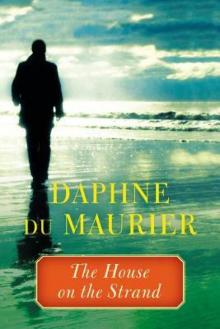 The House on the Strand
The House on the Strand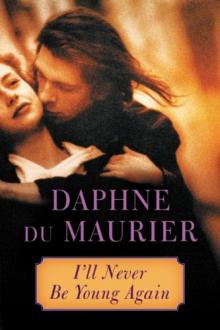 I'll Never Be Young Again
I'll Never Be Young Again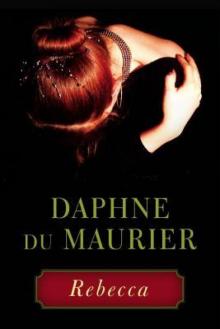 Rebecca
Rebecca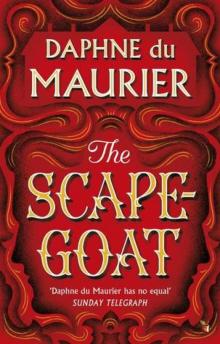 The Scapegoat
The Scapegoat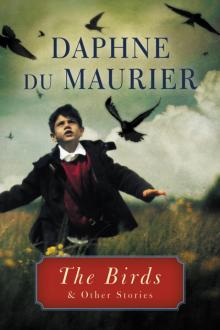 The Birds and Other Stories
The Birds and Other Stories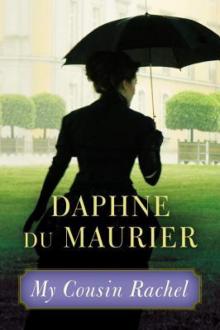 My Cousin Rachel
My Cousin Rachel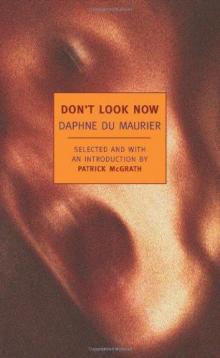 Don't Look Now
Don't Look Now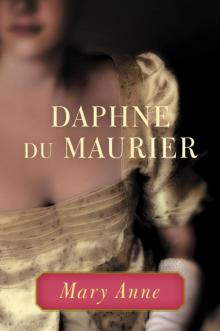 Mary Anne
Mary Anne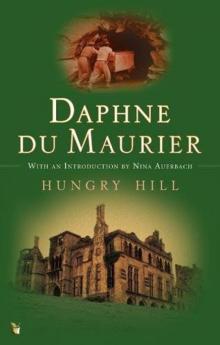 Hungry Hill
Hungry Hill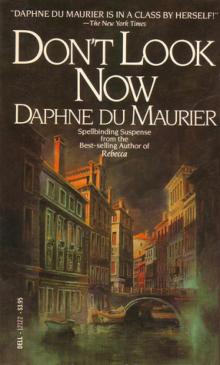 Don't Look Now and Other Stories
Don't Look Now and Other Stories The Loving Spirit
The Loving Spirit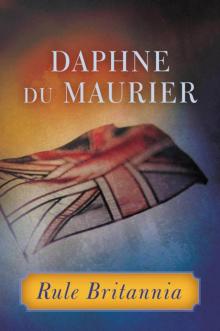 Rule Britannia
Rule Britannia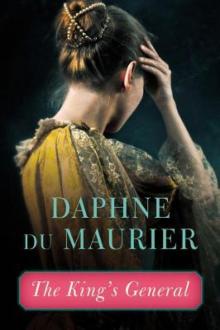 The King's General
The King's General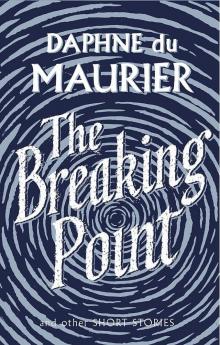 The Breaking Point: Short Stories
The Breaking Point: Short Stories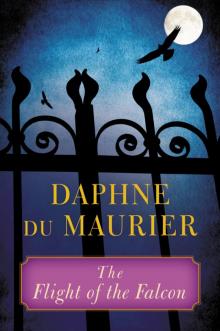 The Flight of the Falcon
The Flight of the Falcon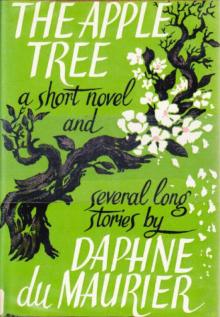 The Apple Tree: a short novel & several long stories
The Apple Tree: a short novel & several long stories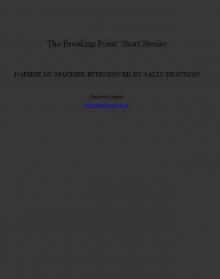 The Breaking Point
The Breaking Point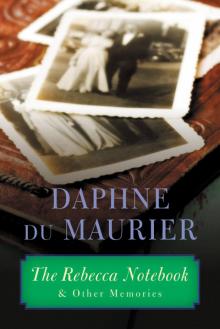 The Rebecca Notebook
The Rebecca Notebook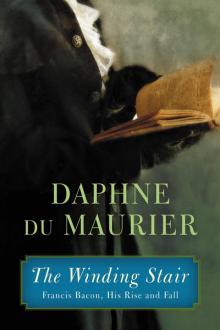 The Winding Stair: Francis Bacon, His Rise and Fall
The Winding Stair: Francis Bacon, His Rise and Fall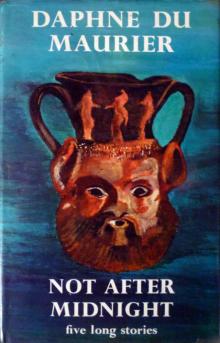 Not After Midnight & Other Stories
Not After Midnight & Other Stories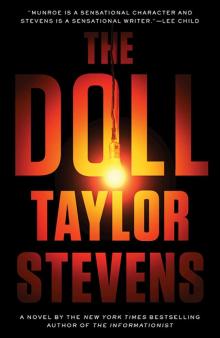 The Doll
The Doll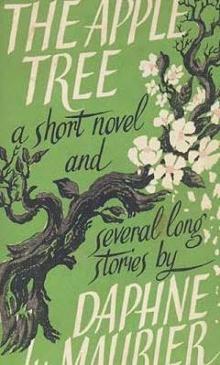 The Apple Tree
The Apple Tree